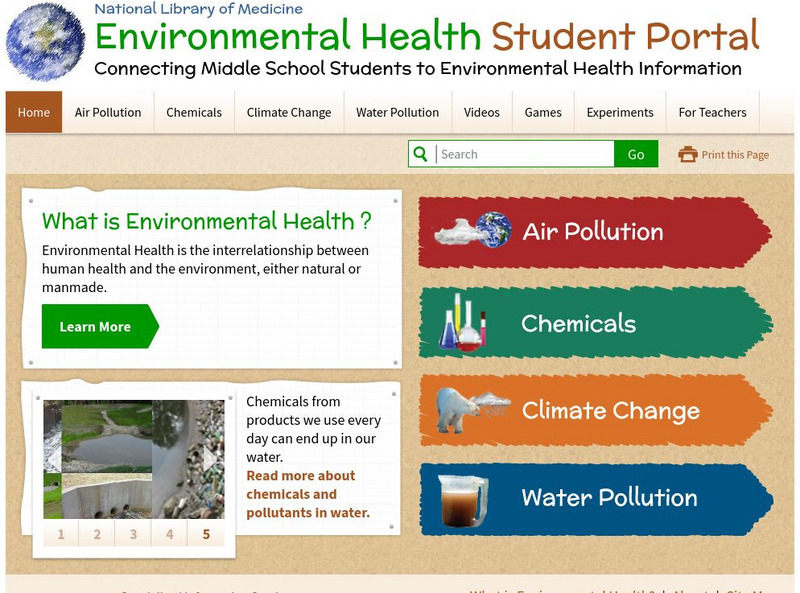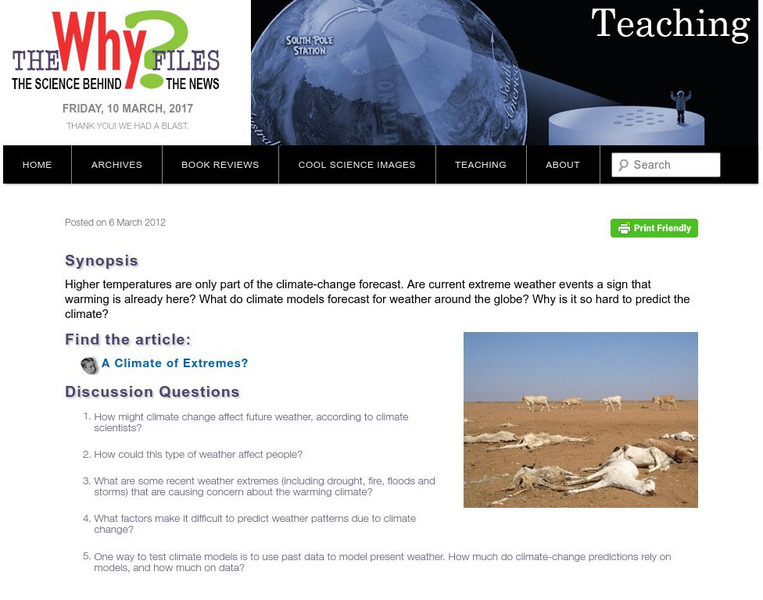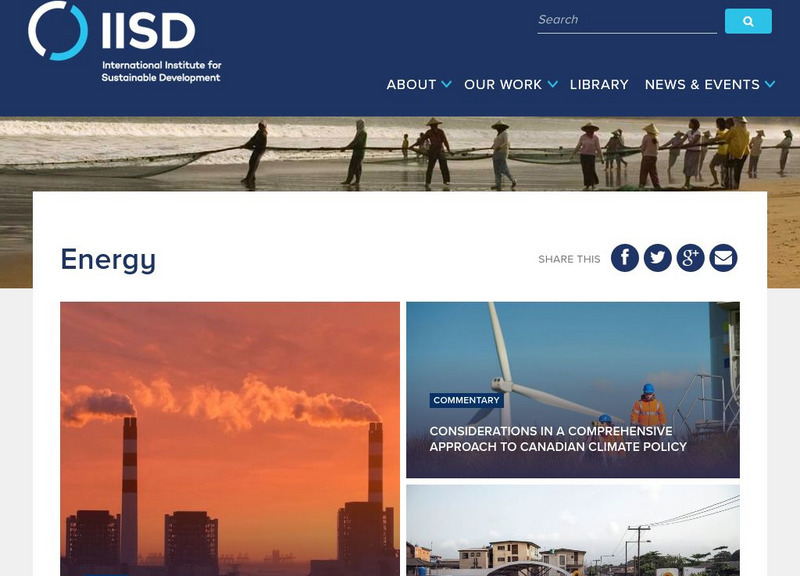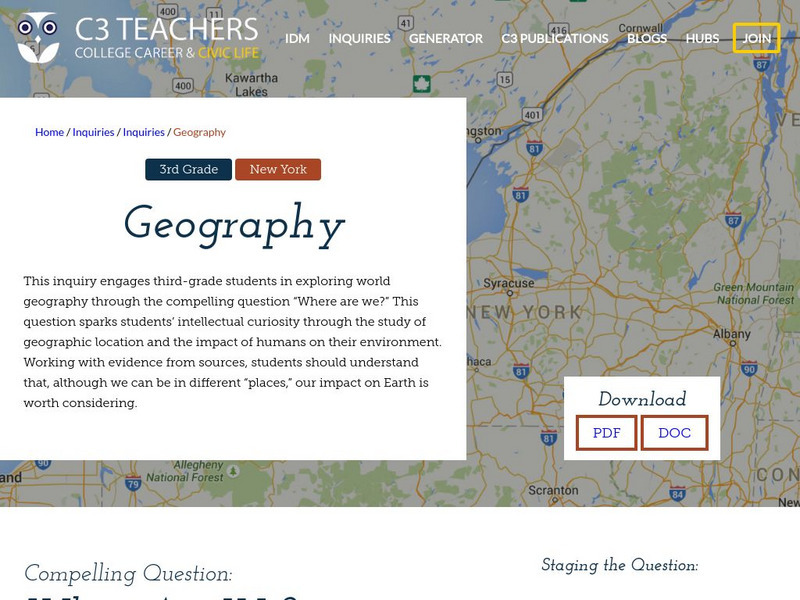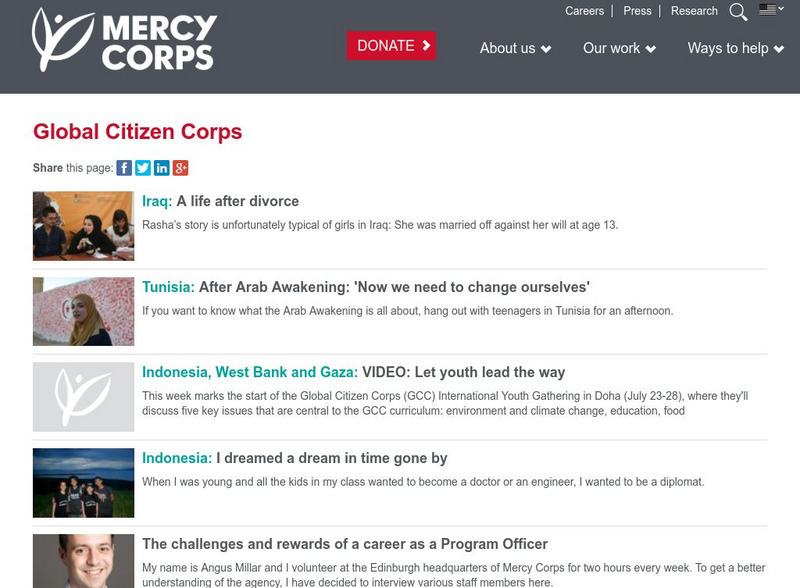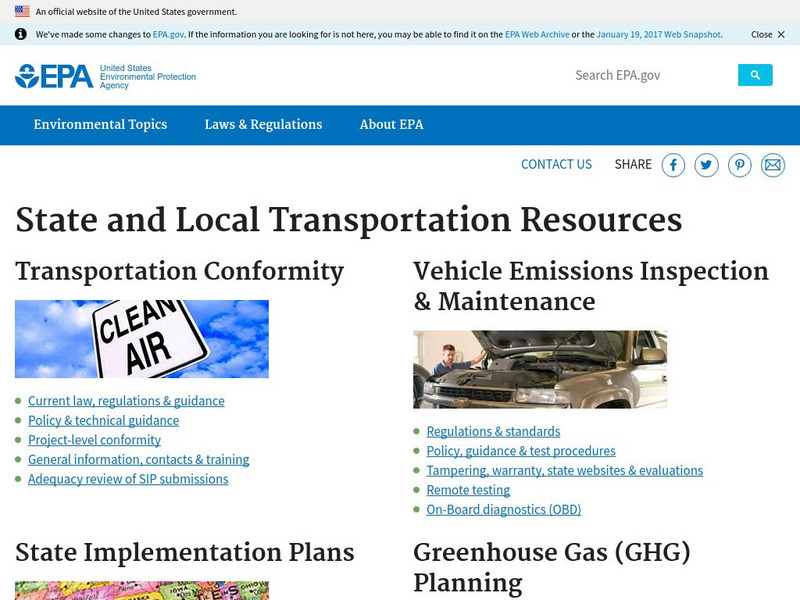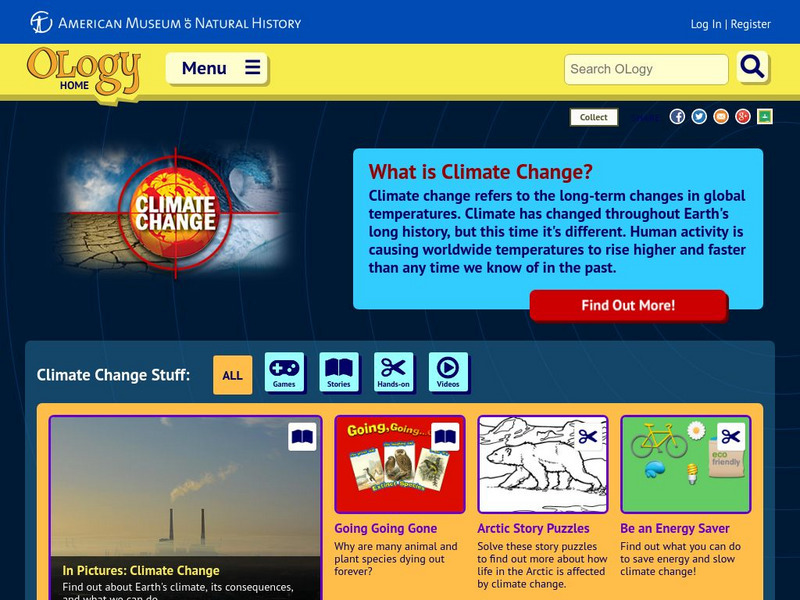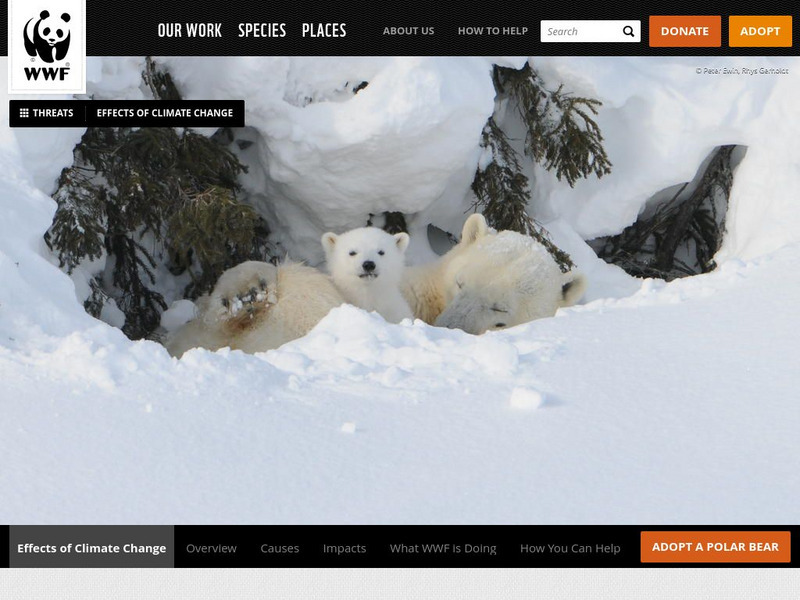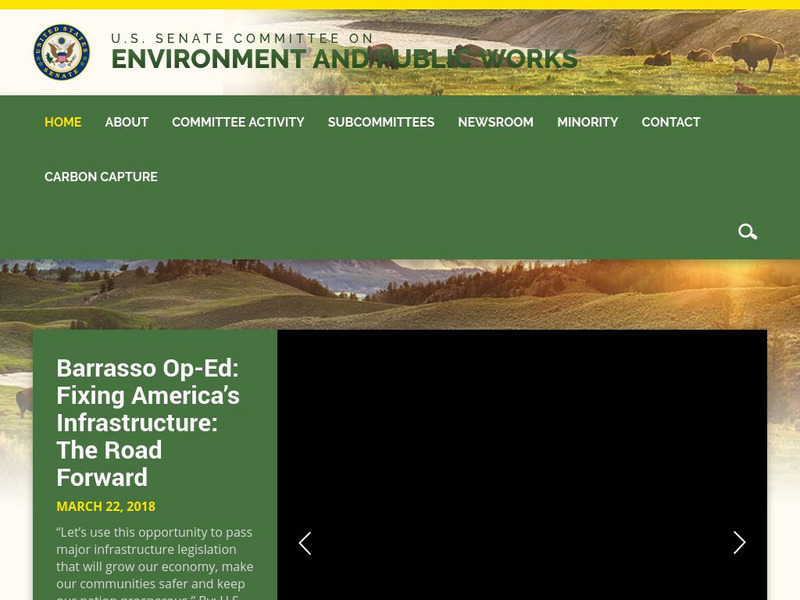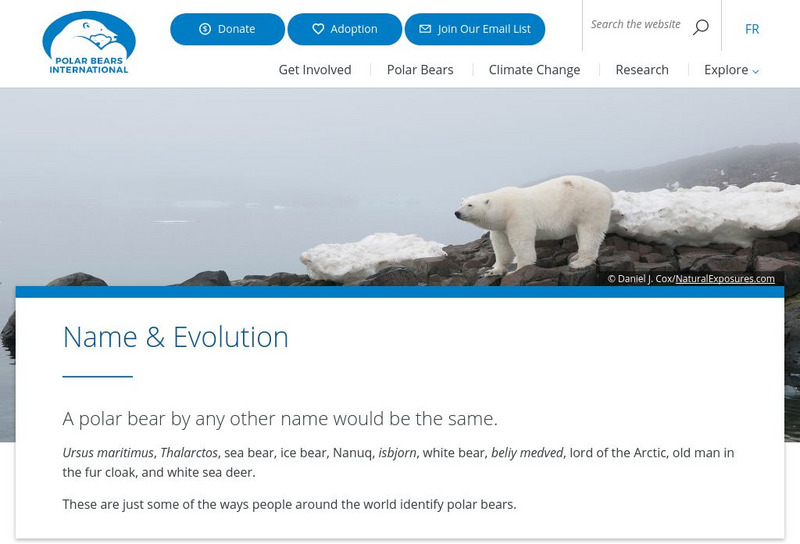Hi, what do you want to do?
DOGO Media
Dogo News: Week of 9 8 14 : Italian Adventurer to Live on Iceberg Until It Melts
Learn about how Alex Bellini plans to live on an iceberg in order to draw attention to the issue of global warming.
Other
Ibcc: Canada's Boreal Forest and Global Warming
Canada's boreal forests and peatlands have vast reserves of carbon deposits that could have a huge impact on global warming if not protected. Carbon maps and fact sheets can be accessed here and there is a good overview of the issues.
National Institutes of Health
National Library of Medicine: Environmental Health Student Portal
An entire site of resources specifically for environmental science and how it is linked to human health. Topics include water pollution, air pollution, climate change, and chemicals.
University of Wisconsin
The Why Files: A Climate of Extremes
Higher temperatures are only part of the climate-change forecast. Are current extreme weather events a sign that warming is already here? What do climate models forecast for weather around the globe? Why is it so hard to predict the...
Other
Niwa: Climate and Weather
Want to learn more about the climate and weather? This webpage contains links to websites around the world concerned with providing information about climate and weather. Topics include ozone, greenhouse gases, global warming, tornadoes,...
Other
International Institute for Sustainable Development: Energy
Learn what the International Institute for Sustainable Development is doing in Canada to help ensure that clean, alternative energy sources are used in the future.
C3 Teachers
C3 Teachers: Inquiries: Geography
A learning module on world geography. It includes several supporting questions accompanied by formative tasks and source materials, followed by a summative performance task. Students investigate where their community is located, where...
Other
Global Citizen Corps
This youth organization is committed to fighting global poverty. The site requires registration in order to access the tools it provides for young people wanting to make a difference. But there is plenty of information on issues such as...
Other
World Wildlife Fund: Earth Hour
Earth Hour began in Australia in 2007 and was taken worldwide in 2008. What it means is that participants are asked to turn off their lights on a specific date at a specified hour, to send a strong message to governments to take stronger...
US Environmental Protection Agency
Epa: Potential Changes in Emissions Due to Improvements in Travel Efficiency
An 84-page report from 2011 that addresses the issue of whether changes can be made in transportation to increase travel efficiency and reduce greenhouse gas emissions that contribute to climate change. Includes many tables and graphs...
Other
Woods Hole Research Center
This site provides information about the issue of climate change. Here you can learn about the greenhouse effect, the scientific evidence to support global warming, the culprits, potential outcomes, what the skeptics don't tell you, and...
TeachEngineering
Teach Engineering: Optimize! Cleaner Energy Options for Rural China
Students work in engineering teams to optimize cleaner energy solutions for cooking and heating in rural China. They choose between various options for heating, cooking, hot water, and lights and other electricity, balancing between the...
TeachEngineering
Teach Engineering: Global Climate Change
Students learn how the greenhouse effect is related to global warming and how global warming impacts our planet, including global climate change. Extreme weather events, rising sea levels, and how we react to these changes are the main...
American Museum of Natural History
American Museum of Natural History: Ology: Climate Change
This resource offers a large collection of games, puzzles, activities, and information pages on the topic of climate change.
Other
World Wildlife Fund: Climate Change
The World Wildlife Fund offers a comprehensive overview of climate change, also known as "Global warming." Content includes basic information about the process and its effect on the environment, the science to back it up, conservation...
US Environmental Protection Agency
Epa: Land, Waste, and Cleanup Topics
This site is loaded with information on solid waste and hazardous waste. It includes industries' effects on the environment, waste programs, treatment, control, pollution prevention, recycling, and cleanup programs.
Government of Canada
Canadian Space Agency: Cloud Sat Looking at Clouds in 3 D
Learn about the mission of ClourSat, a satellite that will gather data as part of a comprehensive study of clouds to help develop a better understanding of the effect of clouds on climate . It will examine their structure, frequency and...
OneWorld UK
One World: Hot Earth: Climate Change for Kids
Younger students will love this colorful yet educational site on global warming and climate change. Easy to read factual information is included. Available in many different languages.
Other
Monterey Bay Aquarium Research Institute: Home Page
Use this excellent site to search the volumes of material available at MBARI about the ocean and climate.
Texas A&M University
Ocean World: Bringing the Ocean to the Classroom
Online resource for students and teachers to see information on icebergs, fisheries, coral reefs, waves, currents and more. Provides teachers with learning activities. Has its own ask-an-expert site (Ask Dr. Bob), and provides real-time...
US Senate
Us Senate Committee: Environment and Public Works
The U.S. Senate Committee on the Environment and Public Works website provides a summary and description of its responsibilities.
Other
Earth Day Network
The official online home of Earth Day offers many resources regarding environmental education. Includes the latest news on environmental advocacy and how to take part in Earth Day each year.
American Museum of Natural History
American Museum of Natural History: O Logy: What Do You Know? Climate Change
Test your knowledge on climate change with this short quiz.
Other
Polar Bears International: The Bear Facts
This site from Polar Bears International, dedicated to the worldwide conservation of the polar bear and its arctic habitat, provides extensive information about the polar bear. Content includes polar bear I.Q., hibernation facts,...







